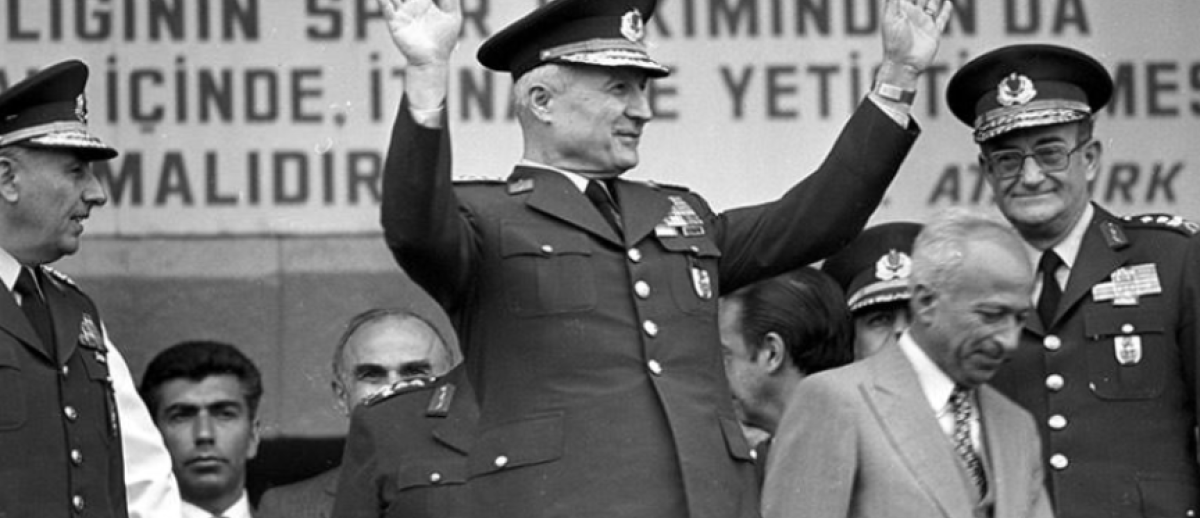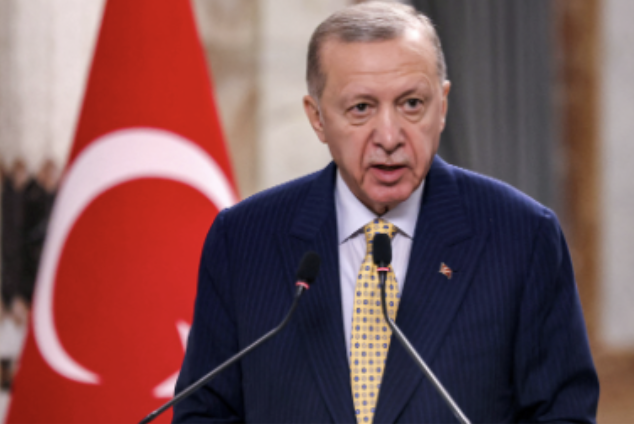Civilian Governance After Military Rule
archive


Kenan Evren, Leader of 1980 Coup in Turkey. President from 1980 - 1989
Civilian Governance After Military Rule
How does a state flip from consistent military interference to a stable civilian government? Although civilian dictatorships also have problems, military dictatorships are distinctly worse in several areas. Military rule is characterized by instability, human rights violations, and more frequent civil wars (Kandeh, 1996; Geddes et al., 2014; Aka, 2002). Despite this many states suffer from prolonged periods of repeated military coups and interference. Some states are able to buck this trend and not only transition to but maintain stable civilian rule. In this article, I aim to explore why this is an interesting and important question and discuss how I plan to analyze it.
Why Should We Care?
What does military interference look like? Military rule can take different forms; it can be a group of officers that provide checks against each other or a single military strongman. In some cases, there is also civilian involvement in military regimes. Typically, military regimes are short-lived, but this doesn't mean they don't have long-term impacts and influences on state policy and future civilian stability. One of the commonly accepted predictors for future military coups is past military coups (Belkin & Schofer, 2003), so it is no surprise that states often get stuck in cycles of military interference. Once a military is involved in politics, it becomes tricky to untangle the two. Although militaries do not typically want to head the government, they also can be reluctant to give full power back to civilians after a successful coup (Said, 2012).
There are different reasons why a coup occurs; some conditions result in higher or lower coup risk. Some examples are a history of past coups, current regime legitimacy, and the strength of civil society (Belkin & Schofer, 2003). Officers are not always honest or clear about their reasons for throwing a coup; frequently, the reasoning for a coup is not as straightforward as the conditions under which there is risk. In the 1971 coup in Turkey, Chief of the General Staff, Memduh Tağmaç, handed in a memorandum outlining the demands of the military, which included "the formation, within the context of democratic principles, of a strong and credible government, which will neutralise the current anarchical situation". Stability is a common rationale, yet as noted previously, military governments are also often unstable.
Turkey - A Case of Transition into Civilian Government
There is a wealth of literature that discusses the transition from military to civilian rule (Ijomah, 2000; Bereketeab, 2022; Hartlyn, 1984). I am interested in adding to the discussion by looking systematically at cases with repeated and prolonged instances of successful military interference followed by fifteen or more years of stable civilian control. The aim is to analyze a trend rather than general transitions or specific cases. By exploring this trend, we can better understand under what conditions a civilian government will be able to maintain power even in states with historically high rates of military involvement. There are many examples of countries that have experienced repeated coups and then stable civilian governments afterward. The case that originally piqued my interest was Turkey. Between 1960 and 2002, Turkey experienced consistent successful military coups and interference in its politics. Since the election of Erdogan and the AKP party in 2002, there has not been a successful instance of intervention by the military.

Recep Tayyip Erdogan. President/Prime Minister of Turkey since 2002
Erdogan was originally hailed as a popularly elected leader who could build democracy in Turkey. He was reelected a second time in 2007, and with Turkey positioning itself to join the EU, it seemed like it could become a democratic state. Ultimately, this is not what occurred; instead, Erdogan consolidated power. In 2014, in order to work around term limit laws, he became the President of Turkey rather than the Prime Minister; however, he was still in power. By this time, it was becoming more and more clear that Turkey was not a democracy; however, it was still a civilian government.
In 2016, the military attempted to launch a coup, the first significant military intervention since 1997. This coup failed, and Erdogan was able to further amend the constitution to prevent any further attempts at removing him from power. After over forty years of successful coups and military interference, the military made the first attempt in fourteen years and failed. I am interested in exploring what made this civilian government unique compared to the governments of the previous forty years. Turkey is one example of this trend. I hope to explore the mechanisms behind this trend in a case study of Turkey. That being said, it is not the only state that has had a similar experience. Argentina, Syria, Bolivia, and many others have had similar patterns. This is not a one-off example; it is fairly common for states to be able to transition to stable civilian governments. Although it is fairly common, it is still difficult to do successfully; otherwise, there would not be states that have had long histories of military interference. What do these states do that allows them to break free from this trend? After conducting this case study, I hope to do a broader statistical analysis that would check to see if the mechanics behind the Turkish case are generalizable to other similar states.
Lehoucq, F., & Pérez-Liñán, A. (2014). Breaking Out of the Coup Trap: Political Competition and Military Coups in Latin America. Comparative Political Studies, 47(8), 1105-1129. https://doi.org/10.1177/0010414013488561
Aka, P. C. (2002). The military, globalization, and human rights in Africa. New York Law School Journal of Human Rights, 18(3), 361-438.
Belkin, A., & Schofer, E. (2003). Toward a structural understanding of coup risk. Journal of Conflict Resolution, 47(5), 594–620. https://doi.org/10.1177/0022002703258197
Bereketeab, R. (2022). Challenges of Transition from Military to Civilian Rule in the Sudan. Current Developments, Peace and Stability in the Horn of Africa, 100.
Geddes, B., Frantz, E., & Wright, J. G. (2014). Military rule. Annual Review of Political Science, 17, 147-162. https://doi.org/10.1146/annurev-polisci-032211-213418
Hartlyn, J. (1984). Military governments and the transition to civilian rule: the Colombian experience of 1957-1958. Journal of Interamerican Studies and World Affairs, 26(2), 245-281.
Ijomah, B. I. C. (2000). Nigeria's transition from military to civilian rule: An overview. Journal of Political & Military Sociology, 293-310.
Kandeh, J. D. (1996). What does the ‘militariat’ do when it rules? military regimes: the Gambia, Sierra Leone and Liberia. Review of African Political Economy, 23(69), 387–404. https://doi.org/10.1080/03056249608704204
Said, A. (2012). The paradox of transition to" democracy" under military rule. Social Research: An International Quarterly, 79(2), 397-434.
Weber, M. (1964). The theory of social and economic organization (T. Parsons, Ed.). New York: Free Press.



